Holy Infant, so tender and mild
Driving to the Mexican border during these dark December mornings, I ask myself a question each week: I wonder how many women and children will be at the comedor today? I volunteer with the Samaritans each Tuesday at a shelter in Nogales, Mexico. Standing in front of the comedor I see a line of thirty or more people waiting for breakfast. Inside the shelter the aid workers and sisters are busy serving up plates of beans and rice to at least 100 migrants who arrived earlier. In twenty minutes, two more vans pull up with perhaps another forty migrants. There is a cacophony of conversation in the tiny kitchen. “How many more plates do we need? Are there enough beans? Can someone run to town and get more eggs? How many more people are outside that we need to feed?” There is a total of 200 migrants today; 39 of them are women.
Latinos are heading south to their home villages to spend Christmas with their families; others are heading north to Los Estados Unidos for jobs and a reconnection with spouses and children. Six women huddle together in the chilly morning air. They are from Oaxaca, Sinaloa, Veracruz, Puebla, Honduras, and Guatemala. Bonding and exchanging stories as they wait patiently for breakfast, they tell me they will cross the border together.
One woman tells me she is expecting a baby in January, and was deported last night from Phoenix. She shows me her shoes, which look like a size 10 on her tiny feet. They flop around like clown shoes as she walks. A t-shirt fits tightly over her extended belly. I take her by the hand and lead her over to some bags on the sidewalk in front of the shelter. Fellow Samaritan John is standing in front of several piles of donated clothing, shoes, backpacks and toiletries. We wait to distribute the clothing until after breakfast, and it looks like it will be a long wait. More people keep arriving looking tired, dusty and disoriented.
Rummaging through the sacks of clothing I pull out a new pair of tennis shoes for this beautiful, pregnant woman who tells me she is from Puebla. We both peer inside the shoe searching for the size. They are size 6. Perfecto! The shoes fit her perfectly. She is elated.
Her name is Consuela, and I ask her why she is here. Samaritan John and I listen to the story of her journey. She walked for two weeks in the desert to reach Phoenix, beginning in September. I mentally calculate that she was five months pregnant during this arduous trek. The father of her baby lives in Phoenix along with his own child. They were driving in a pickup truck in Phoenix a few days ago and were stopped by a police officer because the child was not wearing a seat belt. The child was sitting between them in the truck. It was an instance of “show me your papers,” and this unlucky couple did not have the necessary documents. Police officers, under the auspices of SB1070, the Arizona anti-immigration bill, can stop a vehicle for a traffic offense, and if passengers raise their suspicions, can demand proof of citizenship. Her partner, the baby’s father, was deported to a detention center in Florence. Consuela is standing here on this cold morning in Nogales, and her mood bounces between elation at her new shoes, and tearful emotion as she contemplates her next step.
And then she initiates an action that women everywhere do when they are pregnant. It is an act of trust and intimacy and power. She takes my hand and places it on her pregnant belly and looks into my eyes. Her face is full of awe and pride. “Do you feel it?”
I do. I feel a kick. I am humbled by her trust in me, a stranger to her ten minutes ago. Samaritan John asks her if she knows the sex of the baby. Consuela shakes her head, but thinks it is a boy. She tells us that she intends to cross again and make her way to Phoenix. I implore her not to take on this journey a second time. I tell her she will go into labor and have her baby in the desert.
Consuela reassures me that she will be fine. She knows the desert and what she faces. Traveling with her group of women friends, she will not be alone. Both John and I shake our heads in disbelief and try to mask our horror. She continually pats my arm, telling me “Gracias,” over and over. I tell her to be careful, and to consider spending some time at Casa Nazaret, the women’s shelter. “Think about your baby and the fact that you are close to your delivery date,” I implore her. “The sisters at the shelter will take care of you.” She smiles, thanks us both, and slips away. She has a look of serenity on her face. I am more upset about all of this than she is.
Of all the things I see and hear at the comedor, the specter of mothers and children trying to cross the border wall and walk the desert miles is the most distressing to me. My thoughts center on these women, the children, and the unborn babies, and I try to visualize them safely reaching a destination with people that love them. Somewhere.
The desire to return to family and home defies logic. The wall, the Border Patrol, the detention centers, the desert, the lack of money—these things are minor compared to the intense yearning to be with family and those that we love. A man shows me a scrap of a photo of his wife, and tells me it has been three years since he has seen her. His hands cover his eyes as he tries to control his weeping. A woman sits with her two small children and decides to wait in Nogales until her husband is released from a detention center. She is not sure how she will survive here in Nogales, but she will figure it out. The children are 9 months and 4 years, respectively. Samaritan Sharon cuddles the sleeping baby, Jeremy, while the mother picks out clothes and diapers. Her 4 year old races around under tables and up and down aisles chasing the resident cat.
It is the time of Christmas, and the iconic image of the Madonna and Child are everywhere. The U.S. Postal stamp this year is especially striking. It depicts Mary and Joseph fleeing into Egypt after the birth of Jesus. There is a brilliant desert sunset and a flaming star, and it is a beautiful image–not the usual Renaissance painting of the cherubic Jesus and the remote looking Madonna. I have never liked those centuries-old paintings. To me the Renaissance Madonna often looked distant and cold, never looking at her baby. This year’s stamp looks like a couple on the move. They are migrants on the run, making a get-away to a strange land to save the life of their infant son.
I smile when I look at the stamp. The sunset looks like Arizona. Maybe Consuela will make it. I think about her every day this Christmas season.
My Christmas prayer is for sweeping, comprehensive policy changes with U.S. immigration laws. As Christmas approaches, I wait, like Consuela, with expectation as if I were pregnant. I wait for a miracle on the border. I have high hopes for President Obama’s second term as President. Business leaders, law enforcement administrators, people of faith and elected officials will soon draft proposals to move this state and the country forward. Families have the right to stay together, no matter where a border exists.
It is an exciting time to be in Arizona. The whole world is watching. It is Arizona’s chance to crawl out from under the rock of shame and rise above the state’s image of racism. I am so ready for Arizona to assume some leadership in immigration reform.
I just hope Consuela and her baby can enjoy the fruits of this time of social justice and sweeping change.
( Several names have been changed in this posting.)
The Green Valley Samaritans are volunteers whose mission is to save lives in the southern Arizona desert. To find out more about the Green Valley Samaritans, check their website: www.gvsamaritans.org
The Kino Border Initiative (KBI) is a bi-national organization that works in the area of migration, and is located in both Nogales, Arizona and Nogales, Sonora, Mexico. The KBI’s vision is to help make humane, just, workable migration between the U.S. and Mexico a reality. Their website is: www.kinoborderinitiative.org
The Santa Cruz Community Foundation, a non-profit organization supporting economic development and cross-border issues, can be accessed by emailing the Director, Bob Phillips, at: rtp9@earthlink.net
I endorse the activities of these organizations. Financial contributions to these groups are especially welcome to help support the work in the borderlands.

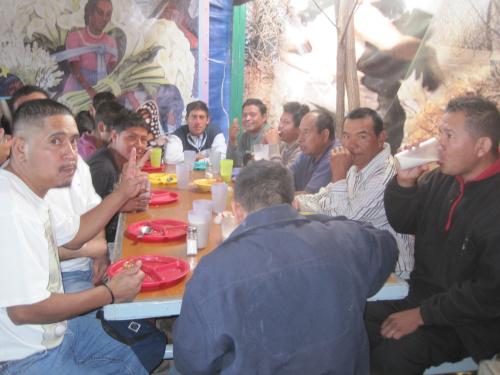
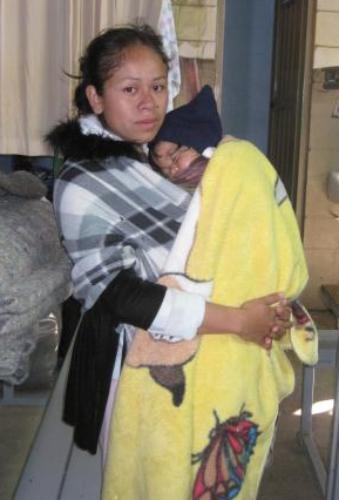
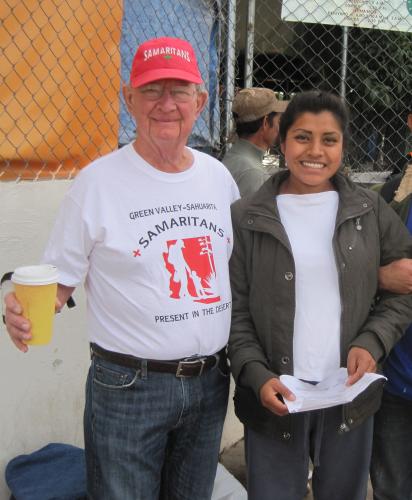
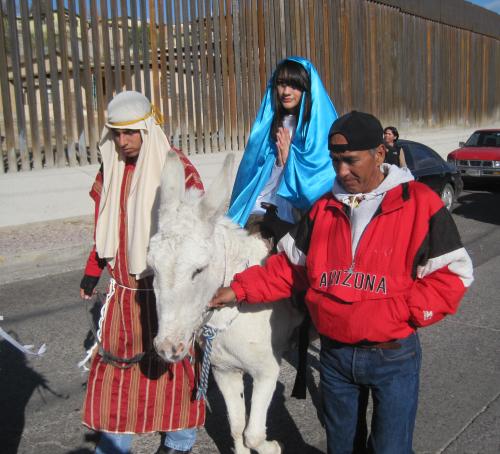
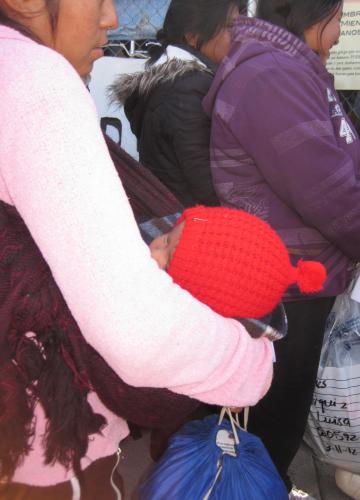
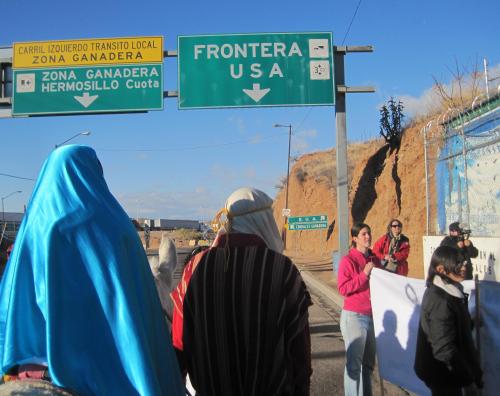
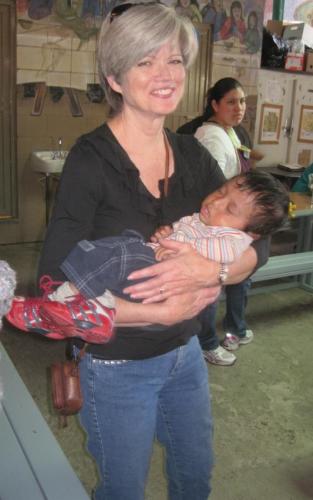
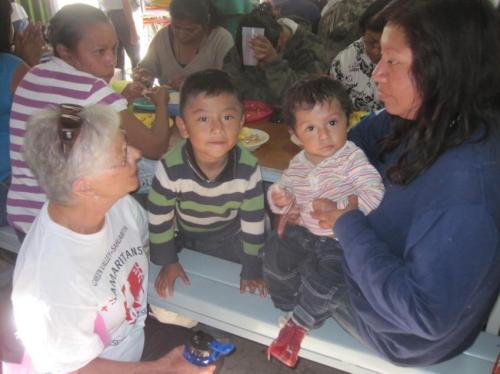
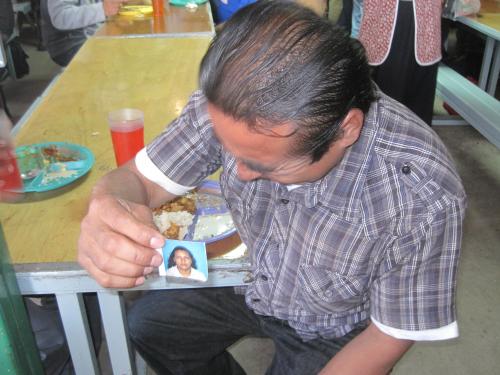
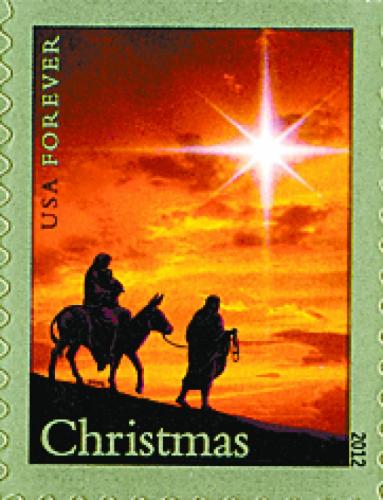
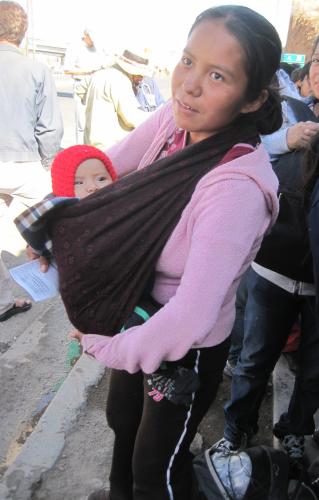
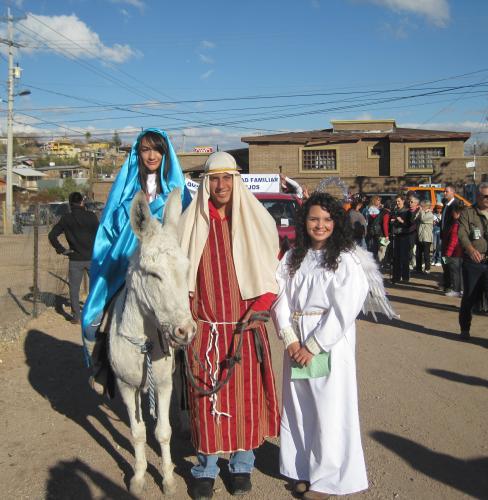

The best Christmas message I know. thank you, dear Peg. You are a saint.
Peg,
Your blog is always great. The migrants are are always accurately depicted; they are warm, wonderful people carrying incredible burdens. I don’t know how they are able to smile and go on, but they do.
Thanks for what you do
John Hemann
Jan Leonard
Peg
Well, this one made me cry. I’m lighting candles for Consuela. I too am looking forward to some sweeping, humanitarian changes in our immigration laws. It would be terrific if Arizona could lead the way.
Jan Leonard
I was so touched by this story having lost my own mother last year. And to think of the families looking only for that connection during the holidays. Have we no mercy? have we no bounty? have we no justice?
marciasherrill said this on December 12, 2012 at 7:02 am (edit)
Thanks, Peg, for another clearly written report from your work in the fields of hope and human difficulty. May Arizona finally put both feet in the 21st century. Merry Christmas.